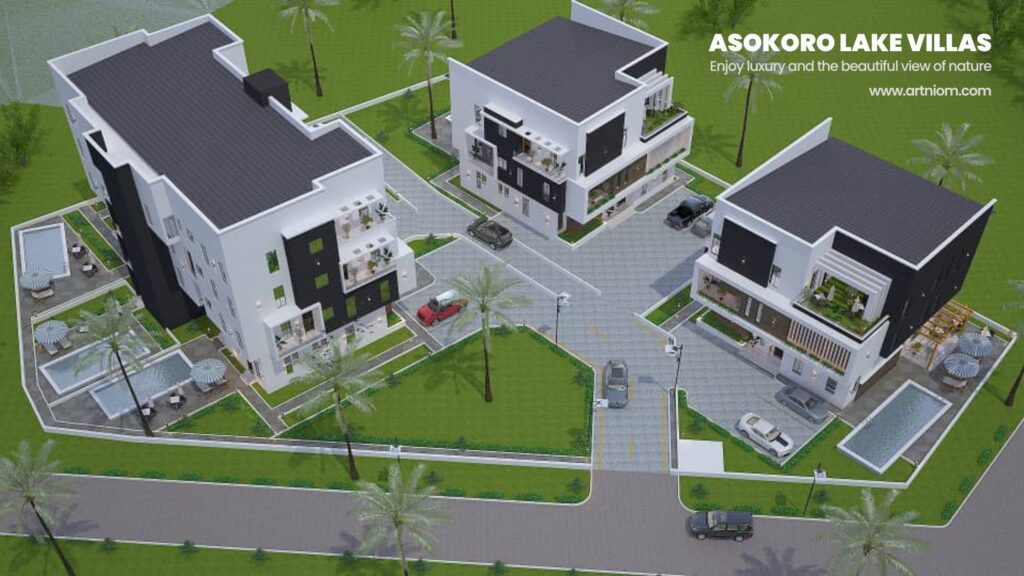Waterfront real estate hold a unique attraction for potential buyers, offering not only a place to call home but also the calmness and beauty of living on or near the water.
Whether you’re looking for a serene escape, an investment opportunity, or a combination of both, this comprehensive guide will provide you with valuable insights into the world of waterfront real estate.
From understanding the benefits and challenges of owning this type of property to tips on finding the perfect one, we’ve got you covered.
The Allure of Waterfront Living
There is something inherently captivating about living near the water.
The soothing sound of waves, the gentle breeze, and the stunning views create a sense of peace and relaxation that is often hard to find elsewhere.
Lakeview properties offer an escape from the hustle and bustle of everyday life, allowing residents to immerse themselves in nature and enjoy a slower pace of living.
The Benefits
Owning a waterfront property is a dream for many, and for good reason. Here are some of the key benefits that draw buyers to these idyllic locations:
- Scenic Views: Waterfront properties offer stunning, ever-changing vistas that can include lakes, rivers, oceans, or even serene ponds. These views provide daily inspiration and create a sense of serenity.
- Recreational Opportunities: Waterfront living opens up a world of recreational activities right at your doorstep. From swimming and fishing to boating and kayaking, there’s no shortage of things to do.
- Privacy and Tranquility: Many of such properties are tucked away in peaceful, secluded areas, providing a sense of privacy and tranquility that is hard to find in other locations.
- Potential Investment: Waterfront real estate often appreciates in value over time, making it not only a place to live but also a smart investment.
- Health and Wellbeing: Research has shown that proximity to water can have a calming effect on the mind and reduce stress levels, contributing to improved overall health and wellbeing.
The Challenges
While the allure of waterfront living is undeniable, it’s important to be aware of the unique challenges that come with owning one:
- Environmental Considerations: Waterfront properties are more vulnerable to natural disasters like floods, hurricanes, and erosion. It’s crucial to understand the environmental risks and take necessary precautions.
- Maintenance Costs: Maintenance and upkeep of waterfront properties can be higher due to exposure to saltwater, humidity, and other elements. Regular maintenance is essential to preserve the property’s value.
- Regulations and Permits: Depending on the location, there may be strict regulations and permitting processes for waterfront development. Be prepared to navigate these requirements.
Types of Waterfront Properties
When searching for waterfront real estate, it’s essential to understand the various types of properties available:
- Oceanfront: These properties are situated along the coastline, offering breathtaking views of the ocean and direct access to the beach.
- Lakefront: Lakefront properties provide serene views of lakes, opportunities for boating and fishing, and a peaceful atmosphere.
- Riverfront: Homes along rivers offer a unique combination of scenic beauty and recreational possibilities, such as kayaking and rafting.
- Pond front: If you’re seeking a more intimate waterfront experience, properties with private ponds or small lakes can offer a tranquil retreat.
- Bayfront: Bayfront properties offer a blend of ocean and waterfront living, often featuring calmer waters and stunning sunsets.
Is Waterfront Property a Good Investment?
Investing in waterfront property can be a lucrative effort, but it’s essential to approach it with careful consideration.
Here are some key factors to keep in mind when assessing the investment potential of lakeview real estate:
- Location Matters: The location of a waterfront property is paramount. Properties in highly sought-after areas with good infrastructure and amenities tend to appreciate more quickly. Additionally, proximity to urban centers, schools, and healthcare facilities can significantly impact the property’s long-term value.
- Market Trends: Study the local real estate market and historical price trends for waterfront properties in the area you’re interested in. Are prices steadily increasing? Are there any factors affecting the market, such as seasonal fluctuations or environmental concerns like flooding?
- Maintenance Costs: Waterfront properties may require more maintenance due to exposure to the elements. Budget for ongoing maintenance costs, including repairs to docks, seawalls, and erosion control measures.
- Rental Income: If you’re considering renting out your waterfront property when you’re not using it, research the local rental market and potential rental income. Vacation rentals in waterfront areas can generate substantial returns during peak seasons.
Does Waterfront Property Appreciate Faster?
Waterfront real estate often appreciate faster than their landlocked counterparts, primarily due to their limited supply and high demand. Here are some reasons why waterfront real estate tends to appreciate more quickly:
- Scenic Views: Stunning water views are a prime selling point for waterfront properties. Buyers are often willing to pay a premium for homes with picturesque views, which can drive up property values.
- Limited Supply: There is a finite amount of waterfront land available, and it cannot be expanded. As populations grow, the demand for waterfront properties increases, driving up prices.
- Desirability: The natural beauty and recreational opportunities associated with waterfront living make these properties highly desirable. This desirability translates into increased demand and, consequently, higher property values.
Budget and Financing
Before diving into the world of waterfront real estate, determine your budget. Keep in mind that waterfront properties often come with a higher price tag due to their desirable location.
Additionally, explore financing options tailored to waterfront properties, such as specialized loans and insurance.
Property Inspection and Survey
A thorough property inspection and survey are critical when buying waterfront real estate. Look for potential issues like seawall damage, mold, and the stability of docks and piers. A professional survey will help you understand property boundaries and any encroachments.
Waterfront Regulations
Research local laws, development control building guidelines and environmental regulations. Some areas may have restrictions on what you can build or modify near the water. Consulting with local authorities and a real estate professional can help you navigate these regulations.
Insurance Considerations
These type of properties may require specialized insurance policies to protect against water-related risks. Be sure to explore insurance options that cover flood damage, storm damage, and other waterfront-specific concerns.
Home Inspection and Maintenance
These type of properties often require more maintenance due to exposure to the elements. Regular inspections and upkeep are essential to preserve the property’s value and ensure safety.
Finding the Perfect Waterfront Property:
Work with a Local Real Estate Agent
A local real estate agent with expertise in waterfront properties is an invaluable resource. They can provide insights into the market, help you navigate regulations, and show you properties that align with your preferences and budget.
Online Listings and Real Estate Websites
Use online resources and real estate websites to search for waterfront properties in your desired location. These platforms often provide detailed information, photos, and virtual tours.
Consider Off-Season Purchases
These type of properties may be more affordable during the off-season or during periods of low demand. Consider timing your purchase strategically to secure a better deal.
Negotiation and Due Diligence
Once you’ve found a property you’re interested in, work with your real estate agent to negotiate a fair price and conduct due diligence. This includes a thorough inspection, reviewing the property’s history, and ensuring all necessary permits and documents are in order.
Waterfront Property for Sale in Asokoro, Abuja.
While we have discussed extensively on waterfront properties, I would like to introduce to you, Asokoro Lake Villa Homes, where luxury meets tranquility in the heart of Asokoro Abuja.
Overlooking a serene lake, These Lakeview homes offer a perfect blend of opulence and nature. Contact Artniom Real Estate today to embark on a journey to your dream home.

Waterfront property is a good investment and offers an opportunity for a unique and fulfilling lifestyle.
Understanding the benefits, challenges and considerations is crucial for potential buyers to make informed decisions.
From evaluating property types to navigating legal aspects, financing, and hidden costs, this comprehensive guide aims to empower prospective buyers, enabling them to embark on their property journey with confidence.
Here are some frequently asked questions:
Can anyone own waterfront property?
Yes, waterfront properties are available for purchase by any eligible buyer, subject to the local laws and regulations governing property ownership.
Can I build a private boat dock?
The ability to build a private boat dock depends on the specific property, local regulations, and permitting requirements.
Consult with local authorities and obtain the necessary permits before proceeding with a private boat dock construction.
What’s the difference between riverfront and lakefront properties?
Riverfront properties are situated along a river, offering stunning views and tranquil surroundings.
Lakefront properties, on the other hand, are located on the shores of a lake, providing access to recreational activities such as boating and fishing. The main difference lies in the type of body of water each property is adjacent to.




